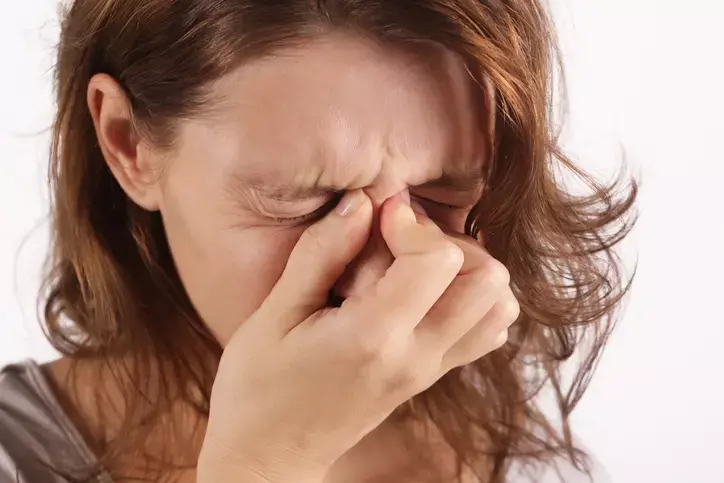- Home
- Medical news & Guidelines
- Anesthesiology
- Cardiology and CTVS
- Critical Care
- Dentistry
- Dermatology
- Diabetes and Endocrinology
- ENT
- Gastroenterology
- Medicine
- Nephrology
- Neurology
- Obstretics-Gynaecology
- Oncology
- Ophthalmology
- Orthopaedics
- Pediatrics-Neonatology
- Psychiatry
- Pulmonology
- Radiology
- Surgery
- Urology
- Laboratory Medicine
- Diet
- Nursing
- Paramedical
- Physiotherapy
- Health news
- Fact Check
- Bone Health Fact Check
- Brain Health Fact Check
- Cancer Related Fact Check
- Child Care Fact Check
- Dental and oral health fact check
- Diabetes and metabolic health fact check
- Diet and Nutrition Fact Check
- Eye and ENT Care Fact Check
- Fitness fact check
- Gut health fact check
- Heart health fact check
- Kidney health fact check
- Medical education fact check
- Men's health fact check
- Respiratory fact check
- Skin and hair care fact check
- Vaccine and Immunization fact check
- Women's health fact check
- AYUSH
- State News
- Andaman and Nicobar Islands
- Andhra Pradesh
- Arunachal Pradesh
- Assam
- Bihar
- Chandigarh
- Chattisgarh
- Dadra and Nagar Haveli
- Daman and Diu
- Delhi
- Goa
- Gujarat
- Haryana
- Himachal Pradesh
- Jammu & Kashmir
- Jharkhand
- Karnataka
- Kerala
- Ladakh
- Lakshadweep
- Madhya Pradesh
- Maharashtra
- Manipur
- Meghalaya
- Mizoram
- Nagaland
- Odisha
- Puducherry
- Punjab
- Rajasthan
- Sikkim
- Tamil Nadu
- Telangana
- Tripura
- Uttar Pradesh
- Uttrakhand
- West Bengal
- Medical Education
- Industry
Benralizumab, dupilumab improve sense of smell in chronic rhinosinusitis with nasal polyps: Study

Delhi: Dupilumab and benralizumab both improved sense of smell in patients having chronic rhinosinusitis with nasal polyps (CRSwNP), also, benralizumab decreased nasal blockage, show results from two studies. Both the studies were published in the Journal of Allergy and Clinical Immunology.
In the first study, Claus Bachert and the team found that benralizumab, when added to standard-of-care therapy, decreased nasal blockage, reduced nasal polyps score (NPS), and reduced difficulty with sense of smell compared to placebo in patients with CRSwNP.
The objective of the study was to assess the efficacy and safety of benralizumab-mediated eosinophil depletion for treating CRSwNP.
The phase 3 OSTRO study incudedd patients with severe CRSwNP who were symptomatic despite treatment with intranasal corticosteroids and who had a history of systemic corticosteroid (SCS) use and/or surgery for nasal polyps (NP). 413 Patients were randomized 1:1 to receive benralizumab 30 mg (n=207) or placebo (n=206) every 4 weeks for the first 3 doses and every 8 weeks thereafter.
Study by Bachert and the team revealed the following findings:
- Benralizumab significantly improved NPS and nasal blockage score compared to placebo at week 40.
- Improvements in Sinonasal Outcome Test 22 score at week 40, time to first NP surgery and/or SCS use for NP, and time to first NP surgery were not statistically significant between treatment groups. Nominal significance was obtained for improvement in difficulty in sense of smell score at week 40.
- Subgroup analyses suggested influences of comorbid asthma, number of NP surgeries, sex, body mass index, and baseline blood eosinophil count on treatment effects.
- Benralizumab was safe and well tolerated.
In the second study, Joaquim Mullol, Hospital Clínic – IDIBAPS, Universitat de Barcelona, CIBERES, Barcelona, Catalonia, Spain, and the team aimed to assess the impact of dupilumab on sense of smell in severe CRSwNP.
The researchers found that Dupilumab produced rapid and sustained improvement in sense of smell, alleviating a cardinal symptom of severe CRSwNP.
In the randomized SINUS-24 and SINUS-52 studies, adults with severe CRSwNP received dupilumab 300 mg subcutaneously or matching placebo every 2 weeks for 24 or 52 weeks, respectively. Through the use of daily patient-reported loss of smell (LoS) score (0–3) and University of Pennsylvania Smell Identification Test (UPSIT; 0–40), the researchers assessed smell. Data from the two studies were pooled through Week 24. Relationships between patient phenotypes and smell outcomes were also assessed.
724 patients were randomized (286 placebo, 438 dupilumab); mean CRSwNP duration was 11 years; 63% had prior sinonasal surgery. Mean baseline LoS was 2.74.
Following were the findings of the study by Mullol and team:
- Dupilumab produced rapid improvement in LoS, evident by Day 3, which improved progressively throughout the study periods (least squares [LS] mean difference versus placebo −0.07 at Week 24).
- Dupilumab improved mean UPSIT by 10.54 (LS mean difference versus placebo 10.57) at Week 24 from baseline (score 13.90).
- Improvements were unaffected by CRSwNP duration, prior sinonasal surgery, or comorbid asthma and/or NSAID-exacerbated respiratory disease.
- Baseline olfaction scores correlated with all measured local and systemic type 2 inflammatory markers except serum total IgE.
References:
1) Bachert C, et al. J Allergy Clinical Immunol. 2021;doi:10.1016/j.jaci.2021.08.030.
2) Mullol J, et al. J Allergy Clin Immunol Pract. 2021;doi:10.1016/j.jaip.2021.09.037.
Dr Kamal Kant Kohli-MBBS, DTCD- a chest specialist with more than 30 years of practice and a flair for writing clinical articles, Dr Kamal Kant Kohli joined Medical Dialogues as a Chief Editor of Medical News. Besides writing articles, as an editor, he proofreads and verifies all the medical content published on Medical Dialogues including those coming from journals, studies,medical conferences,guidelines etc. Email: drkohli@medicaldialogues.in. Contact no. 011-43720751


